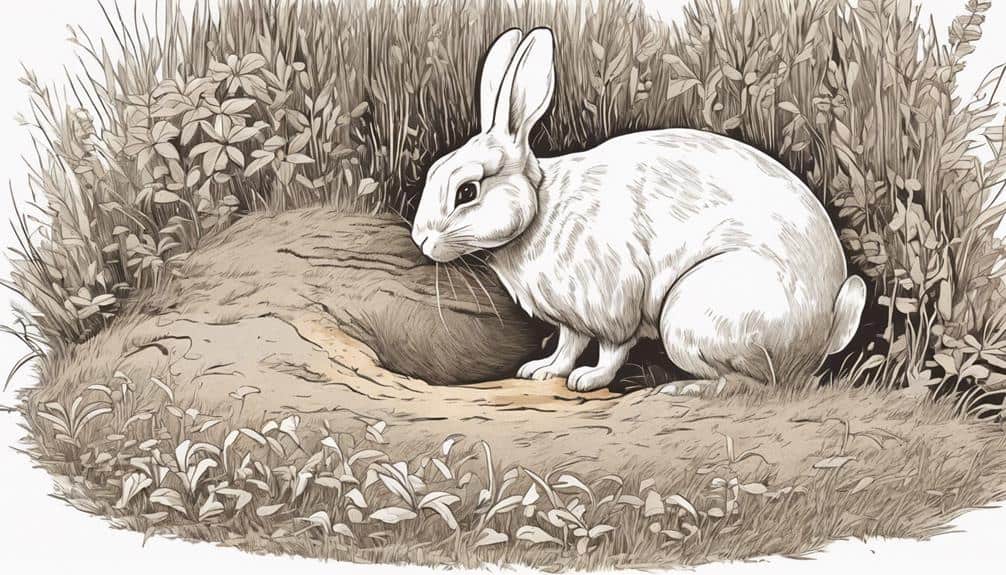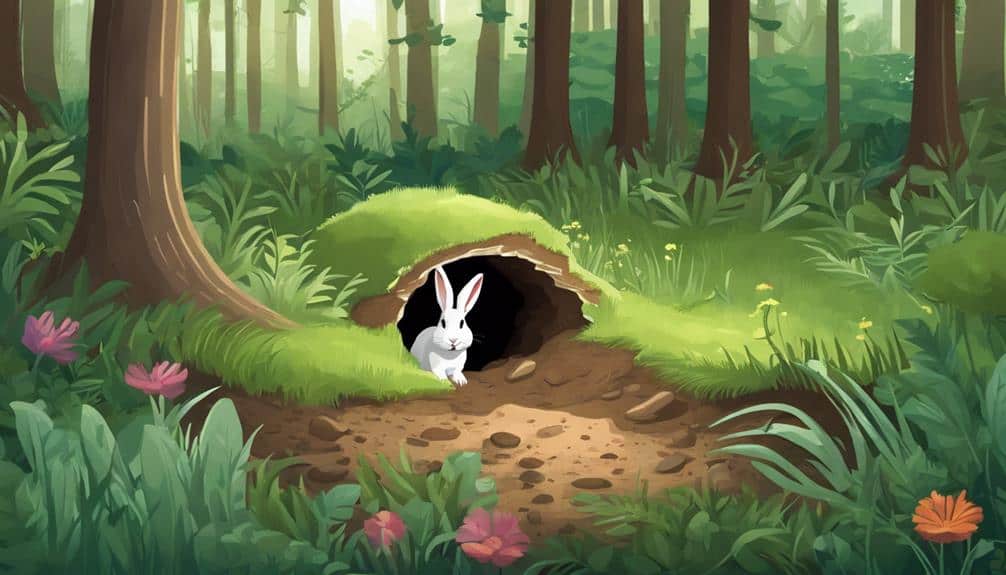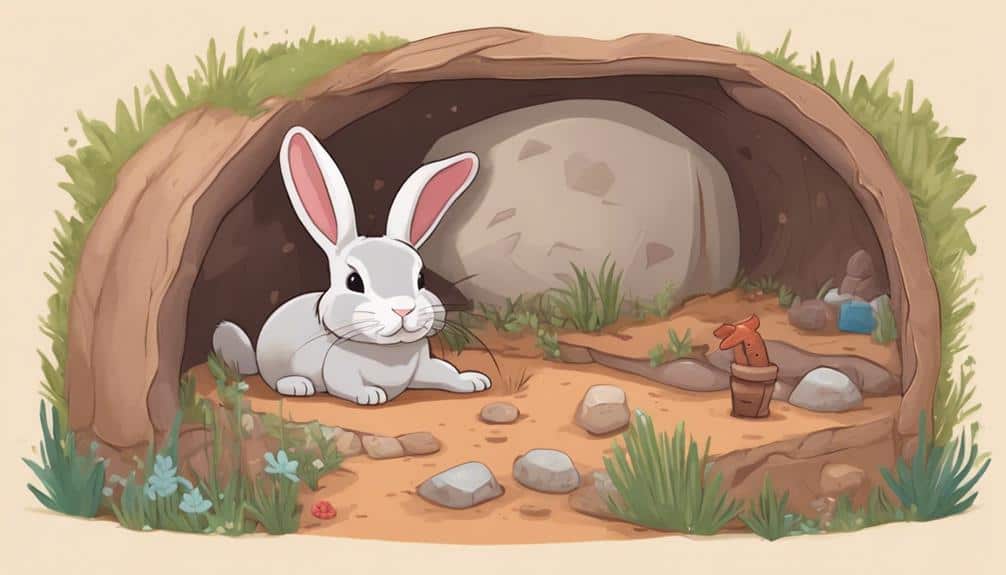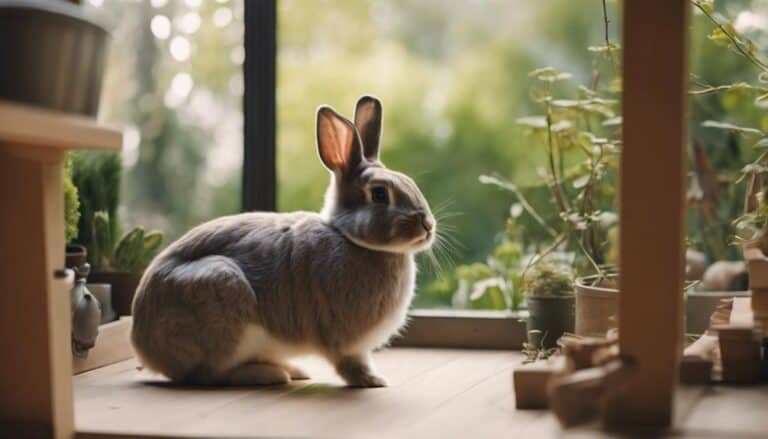Have you ever wondered why bunnies choose to dig burrows in the wild?
The act of burrowing serves a crucial purpose in the lives of these furry creatures, impacting their survival and well-being in significant ways.
By understanding the motivations behind this behavior, you will gain insights into the fascinating world of wild bunnies and their intricate relationship with their environment.
Contents
- 1 Key Takeaways
- 2 Bunny Burrowing Behavior Explained
- 3 Natural Habitat of Wild Bunnies
- 4 Importance of Burrows for Bunnies
- 5 Factors Influencing Burrow Locations
- 6 Encouraging Burrowing in Domestic Bunnies
- 7 Frequently Asked Questions
- 8 Do Bunnies Shed More When They’re Preparing to Dig Burrows in the Wild?
- 9 Conclusion
Key Takeaways
- Burrowing is instinctual for protection and survival.
- Burrows offer security, shelter, and nesting sites.
- Essential for escaping predators and raising young.
- Facilitates foraging and minimizes exposure to threats.
Bunny Burrowing Behavior Explained

When observing bunny burrowing behavior, it becomes evident that these actions are primarily driven by the instinctual need for protection and security in their natural environment. Burrows play an essential role in the survival of wild bunnies, offering them a safe haven from predators such as cats, owls, foxes, weasels, and even humans. The instinct to dig burrows is deeply ingrained in their behavior, allowing them to seek refuge and escape potential dangers.
For mother rabbits, burrows serve as secure dens for giving birth and raising their vulnerable offspring away from harm. These underground structures provide a protective environment where the young can grow and develop without the constant threat of predators. Additionally, burrows act as retreats for rabbits when they feel threatened, enabling them to hide and wait until the danger has passed.
Natural Habitat of Wild Bunnies
Wild bunnies typically inhabit diverse natural environments, ranging from grasslands and meadows to forests and shrublands, where they establish intricate burrow systems to safeguard their safety and survival. In the wild, rabbits rely on these burrows for protection from a variety of predators such as cats, owls, foxes, weasels, and even humans. The underground burrows also serve as nesting sites where mother rabbits give birth and raise their young in a secure environment away from potential threats. These burrows provide a sense of security for the rabbits, offering a safe space to retreat to when feeling threatened or scared.
Additionally, these burrows play a vital role in the daily lives of wild rabbits. They serve as starting points for the bunnies to venture out into their natural habitat to forage for food. This system allows the rabbits to access resources while minimizing their exposure to predators, ensuring their survival in the wild. Essentially, burrows are essential components of the natural habitat of wild rabbits, providing them with safety and security in their environment.
Importance of Burrows for Bunnies

Burrows are important structures for bunnies, providing essential protection and security in their natural habitats. When considering the significance of burrows for bunnies, several key points come to light:
- Protection from Predators: Burrows offer bunnies a safe haven from various predators such as cats, owls, foxes, weasels, and even humans. This protection is essential for their survival in the wild.
- Maternal Care: Mothers utilize burrows as dens to give birth and raise their offspring in a secure environment. These underground shelters provide a nurturing space for the young bunnies to grow and develop.
- Security and Foraging Base: Burrows serve as a secure sleeping spot for bunnies, allowing them to rest without the constant threat of danger. Additionally, these structures act as bases for foraging food, enabling bunnies to venture out, gather sustenance, and return to safety swiftly.
Understanding the importance of burrows for bunnies sheds light on the critical role these structures play in ensuring the well-being and survival of these adorable creatures in their natural habitats.
Factors Influencing Burrow Locations
Bunnies strategically select burrow locations based on various factors such as soil type, proximity to food sources, drainage quality, weather protection, and predator avoidance to guarantee top safety and efficiency.
When rabbits dig burrows, they prefer areas with soft, easily excavated soil to facilitate construction and expansion. The proximity to food sources is important for quick access to nourishment, reducing the time spent outside the burrow and thereby minimizing exposure to predators.
Additionally, rabbits choose burrow locations with good drainage to prevent flooding during rain, securing a dry and safe environment. Shelter from extreme weather conditions, such as heat and cold, also influences their burrow site selection, providing a comfortable retreat.
Moreover, burrow locations are strategically chosen to minimize the risk of predator encounters, safeguarding both the rabbits and their offspring. By considering these factors, rabbits make sure that their burrow locations offer the necessary shelter and security for their survival in the wild.
Encouraging Burrowing in Domestic Bunnies

Encouraging domestic bunnies to engage in burrowing behavior can enrich their daily lives and promote their physical and mental well-being. To help your rabbit dig and create burrows, consider the following:
- Provide Digging Boxes: Fill a shallow container with soil, hay, or shredded paper to give your bunny a designated area for digging. This will satisfy their natural urge to burrow and create tunnels.
- Hide Treats for Digging: Hide small treats or pieces of vegetables in the digging box to encourage your rabbit to forage and dig around. This stimulates their senses and keeps them mentally engaged.
- Create Tunnel Options: Place cardboard tubes or tunnels in your bunny's play area to mimic burrows. Bunnies enjoy exploring and hiding in these structures, fulfilling their instinct to seek shelter and security.
Frequently Asked Questions
Why Do Wild Rabbits Burrow?
In natural habitats, wild rabbits burrow to protect themselves. It's a survival instinct and an environmental adaptation. Burrows provide safety from predators. They create secure spaces for resting and giving birth, ensuring their survival in the wild.
Why Is a Wild Rabbit Digging in My Yard?
You see a wild rabbit digging in your yard as it exhibits natural behavior to create a safe space. It's seeking protection from predators, establishing a secure habitat for itself and potential offspring, blending its instinctual need with your garden.
How Do You Stop Wild Rabbits From Burrowing?
To stop wild rabbits from burrowing, you can use rabbit deterrents like barriers or repellents, adjust your landscaping to make it less appealing, and consider wildlife management techniques to deter them from digging. These methods can help protect your yard.
Do Wild Rabbits Make Tunnels Underground?
In the wild, rabbits indeed make tunnels underground. This burrowing behavior is a vital survival strategy. They construct intricate tunnel networks as their underground homes, impacting the environment and fostering essential ecosystem interactions.
Do Bunnies Shed More When They’re Preparing to Dig Burrows in the Wild?
Yes, bunnies do shed more when they’re preparing to dig burrows in the wild. This is a natural process for them to create a comfortable and warm space for their young. To handle bunny shedding care tips effectively, regular brushing and a balanced diet can help manage excessive shedding.
Conclusion
As the sun sets over the vast landscape, the intricate network of burrows created by wild bunnies stands as a proof of their survival instincts. Like architects of the underground world, these furry creatures dig with purpose and precision, crafting sanctuaries that offer protection and solace.
The burrows symbolize a bond between nature and necessity, showcasing the resilience and resourcefulness of these small but mighty creatures in the face of the harsh wilderness.






